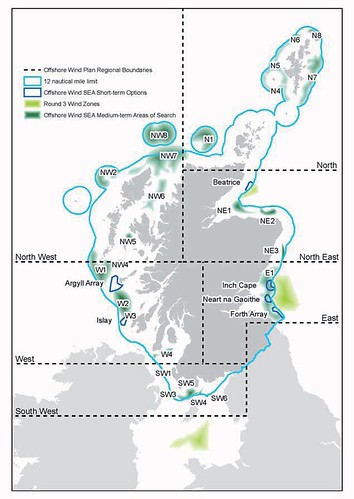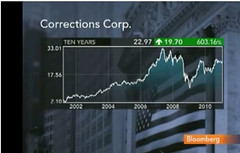Aaron Colter wrote 23 March 2011:
5 GW Of Offshore Scottish Wind Power By 2020?
The Scottish Government has released a
plan for offshore wind
that
 highlights six areas for potential development. The original plan
had selected ten regions for offshore renewable energy, however, four
were ultimately abandoned due to predicted negative environmental and
economic impact.
highlights six areas for potential development. The original plan
had selected ten regions for offshore renewable energy, however, four
were ultimately abandoned due to predicted negative environmental and
economic impact.
The six sites still in the running have an estimated energy potential of
nearly five gigawatts by 2020, or enough to power 3 million homes. Richard
Lochhead, Rural Affairs and Environment Secretary, said that Scotland’s
commitment to offshore wind production could generate over $11 billion
for the country’s economy and support up to 28,000 jobs over the next
ten years.
For comparison, Scotland has about
370,000 households.
According to the General Record Office for Scotland,
Estimates of Households and Dwellings in Scotland, 2009:
In mid-2009, there were 2.34 million households in Scotland
That’s right, they’re talking
eight 1.28 times as much power as all
of Scotland’s homes could use.
I would guess this means they plan to export some of that power,
perhaps to England.
It seems renewable energy planning has spread beyond
the Highlands
to the rest of Scotland.
-jsq
Update 6:45 PM 3 Apr 2011: Fixed total household number; thanks to Malcom Smith for catching this typo.
Misplaced Priorities tracks the steady shift of state funds away from education and toward the criminal justice system. Researchers have found that over-incarceration most often impacts vulnerable and minority populations, and that it destabilizes communities.








